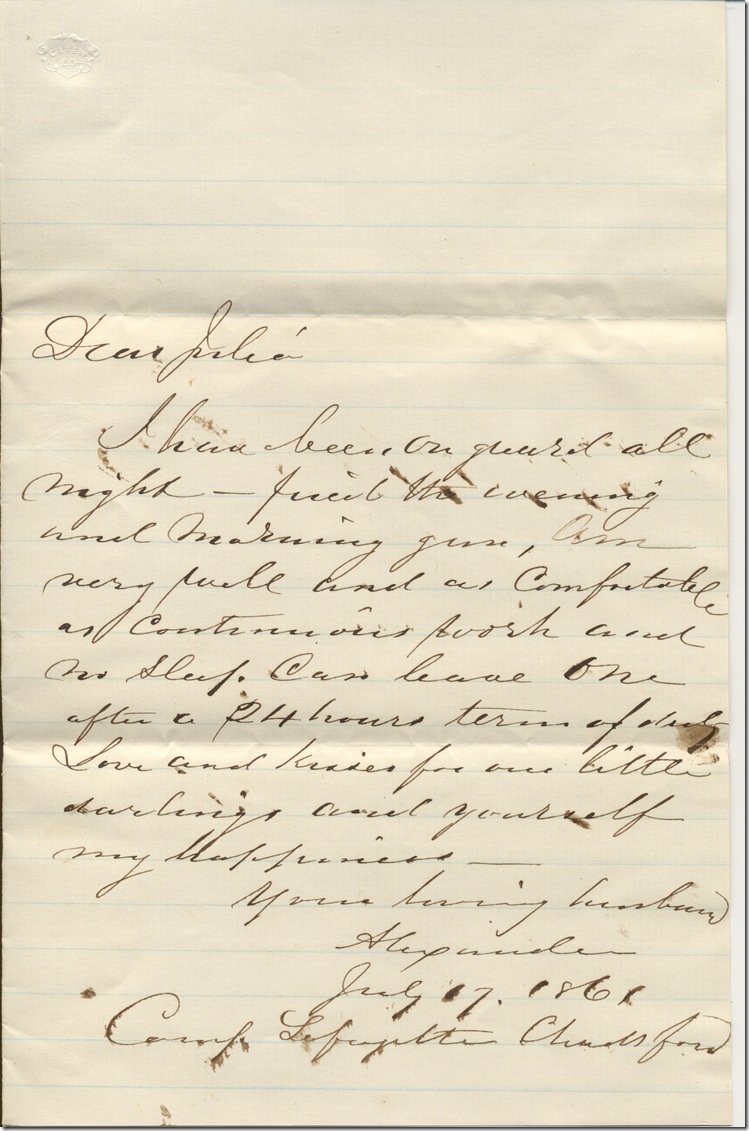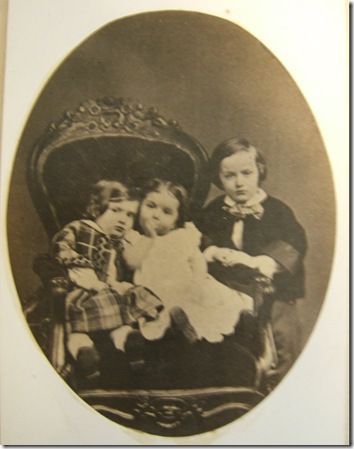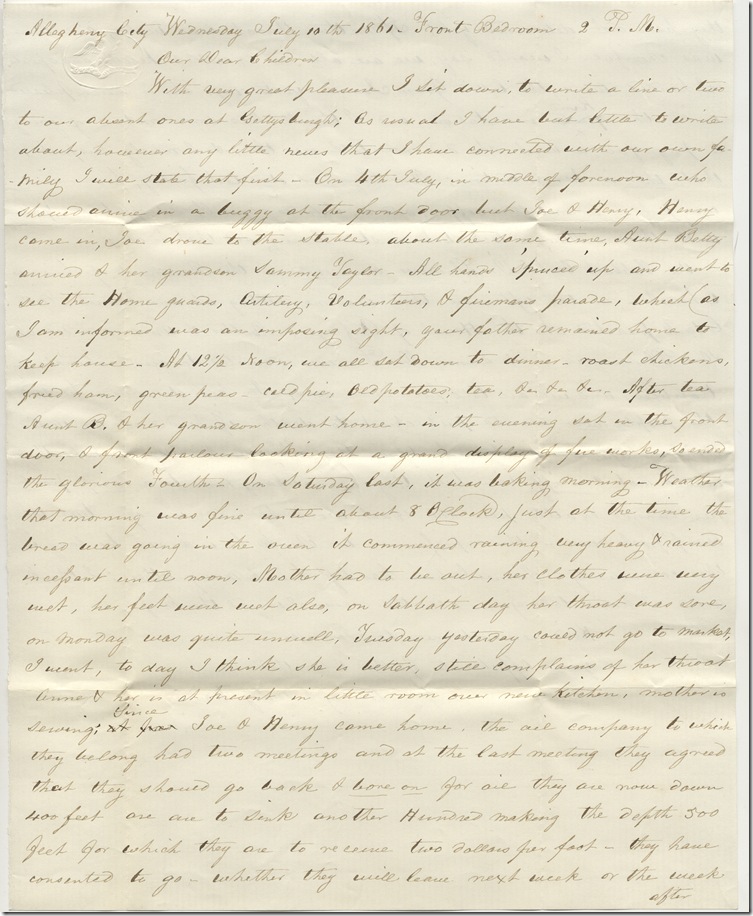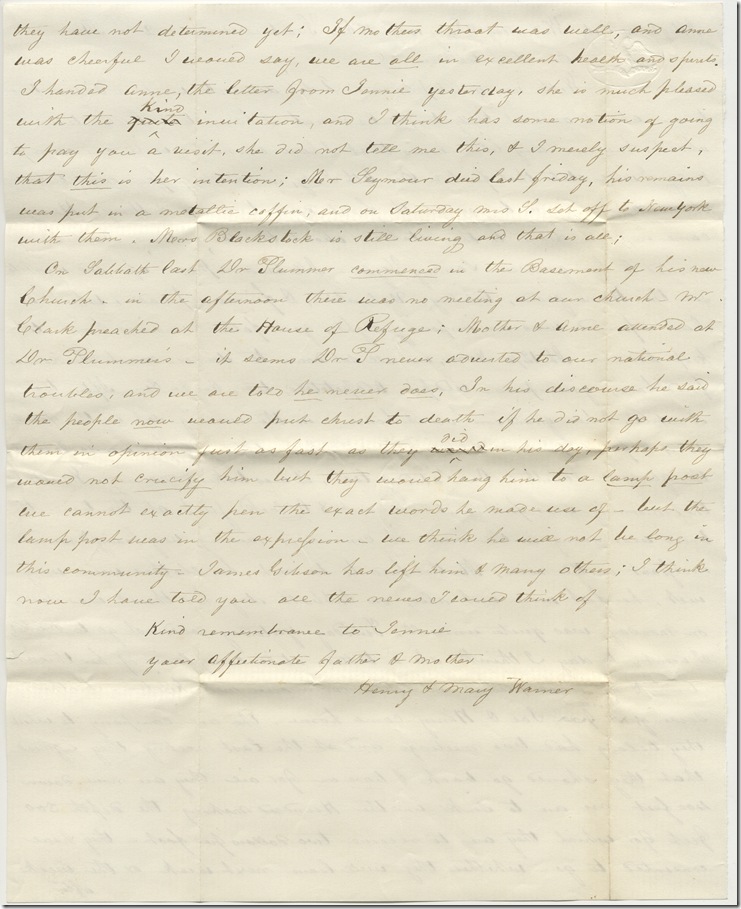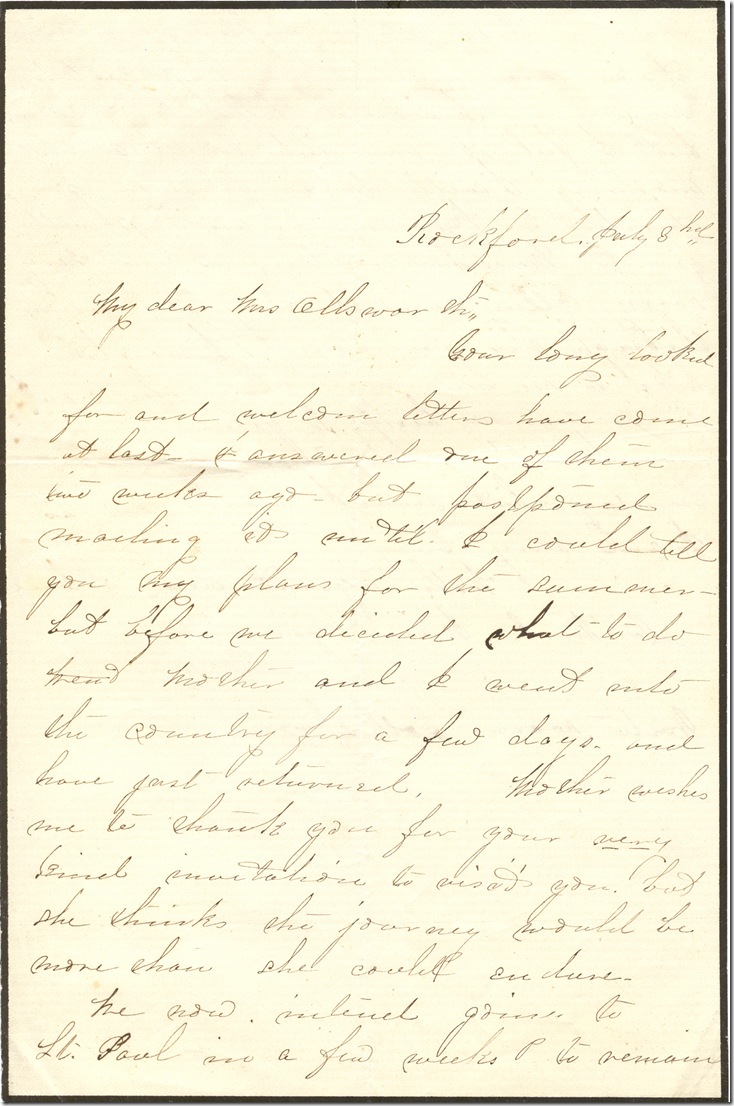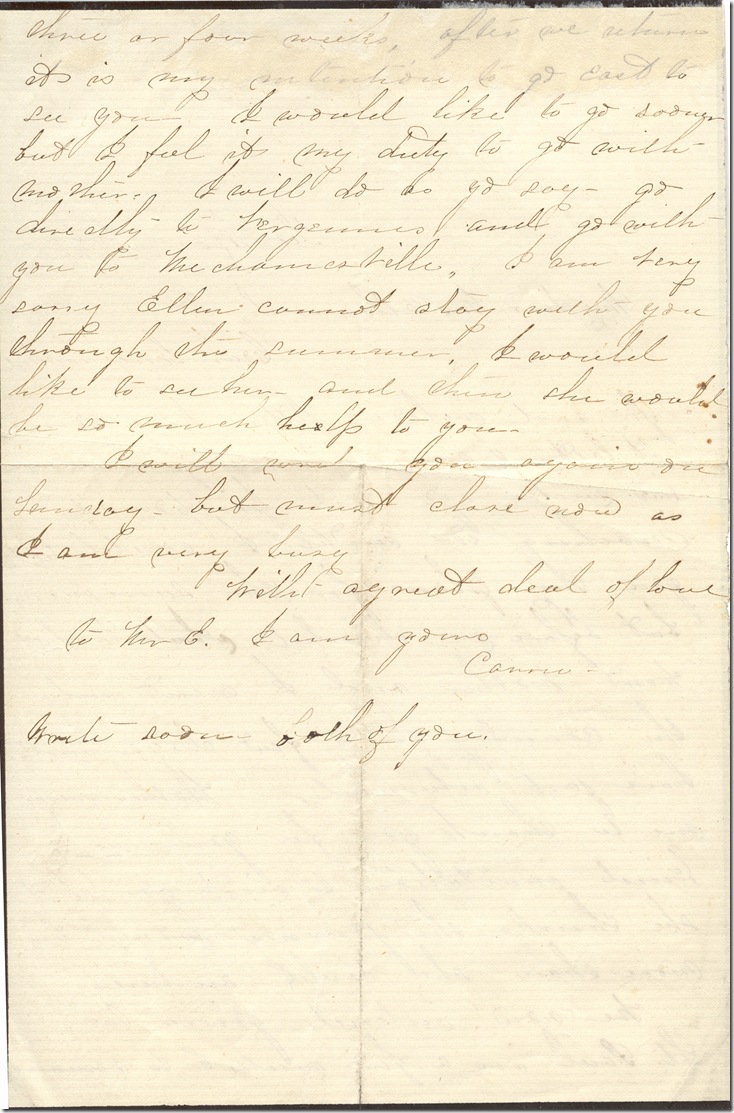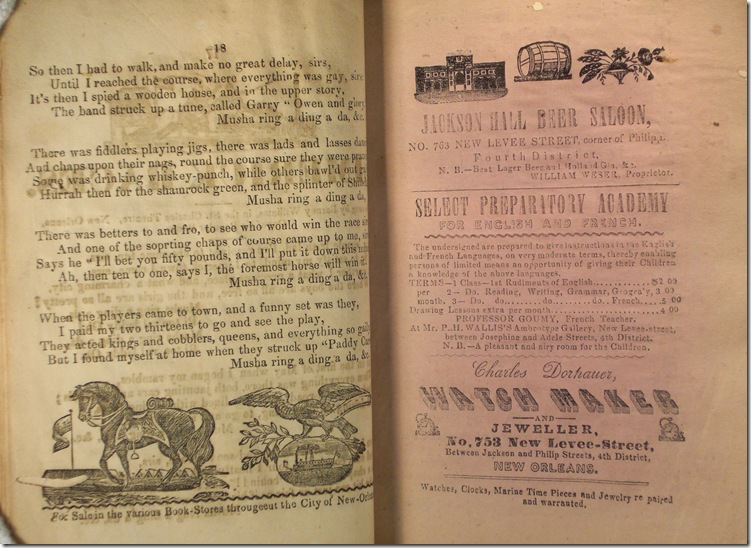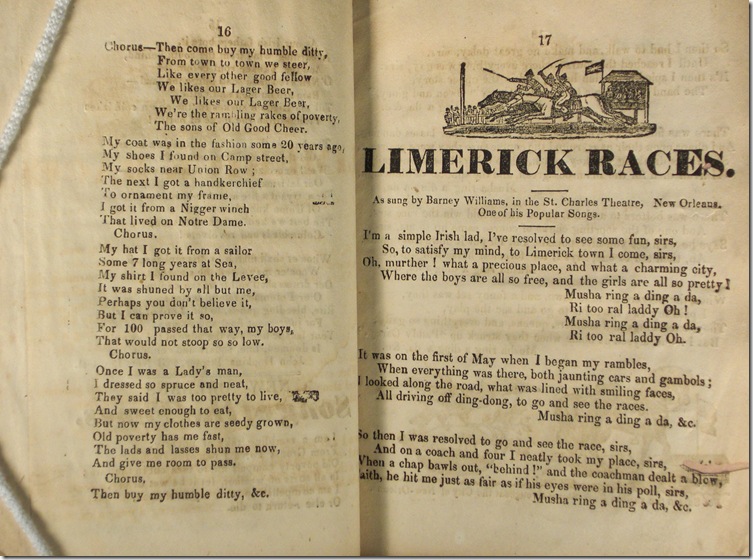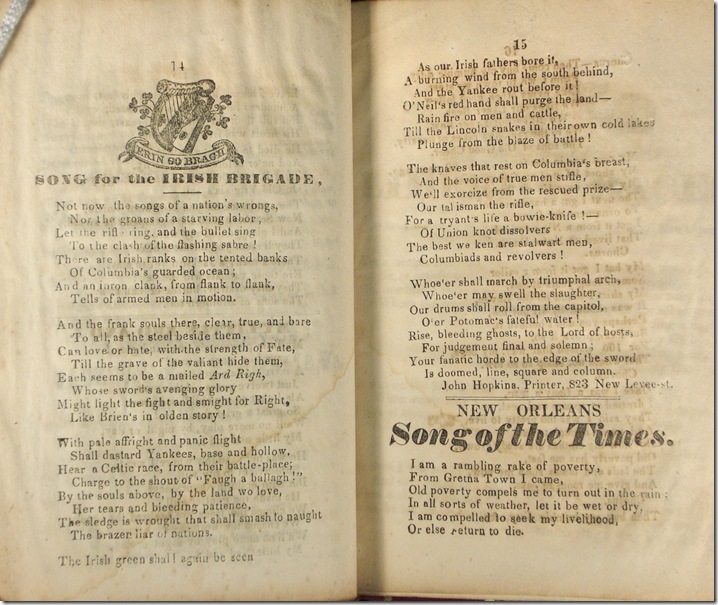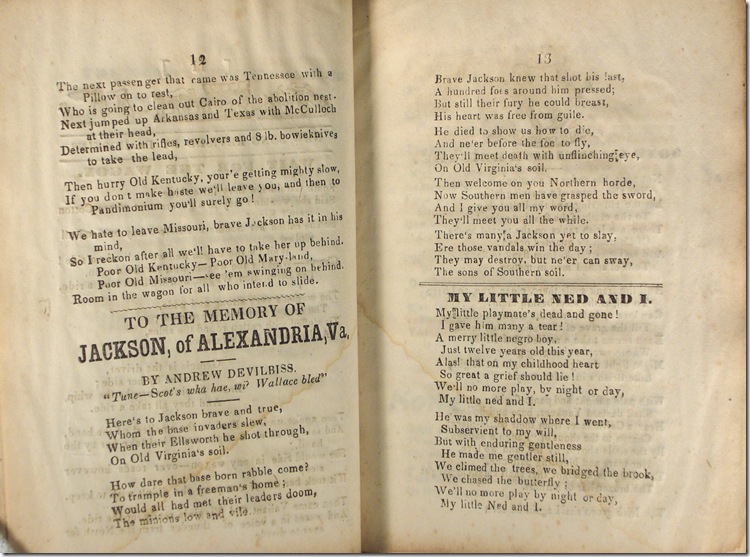Henry and Mary Warner lived in Allegheny City, Pennsylvania, now part of Pittsburgh. They are the great-grandparents of poet Marianne Moore. By the 1860s they had three surviving children: John, Henry, and Annie. Their letters to John, a Presbyterian minister living in Gettysburg, are preserved as part of Marianne Moore’s family papers.
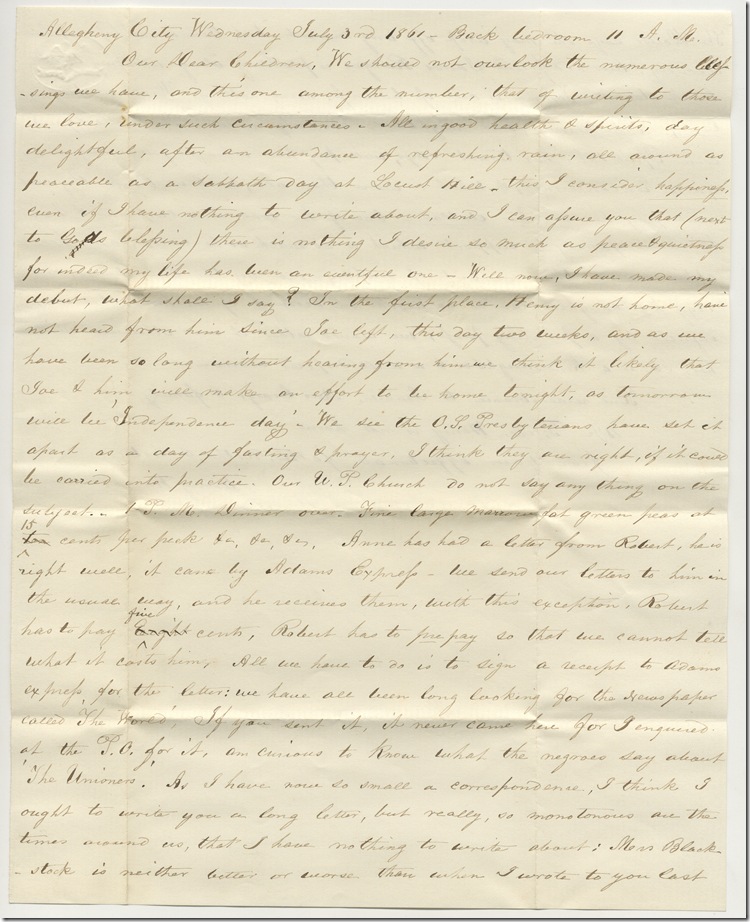
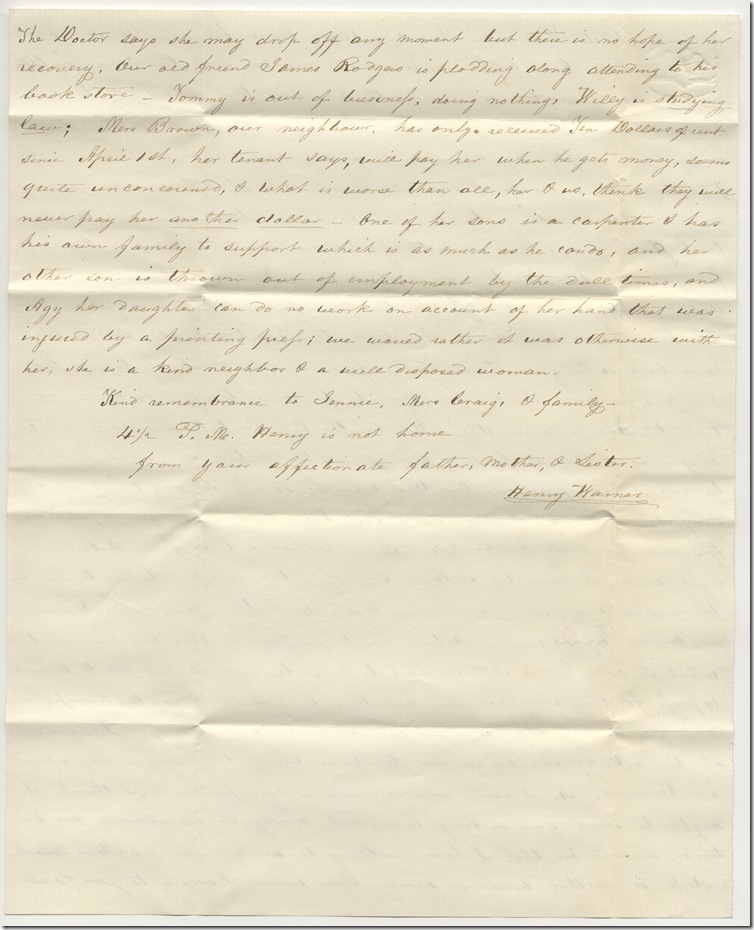
Transcript:
Allegheny City Wednesday July 3rd 1861—Back bedroom 11 A.M.
Our Dear Children, We should now overlook the numerous blessings we have, and this one among the number, that of writing to those we love, under such circumstances—All in good health & spirits, day delightful, after an abundance of refreshing rain, all around as peaceable as a Sabbath day at Locust Hill—this I consider happiness, even if I have nothing to write about, and I can assure you that (next to Gods blessing) there is nothing I desire so much as peace & quietness for indeed my life has been an eventful one—Well now, I have made my debut, what shall I say? In the first place, Henry is not home, have not heard from him since Joe left, this day two weeks, and as we have been so long without hearing from him we think it likely that Joe & him will make an effort to be home tonight, as tomorrow will be ‘Independence day’. We see the O.L. Presbyterians have set it apart as a day of fasting & prayer, I think they are right, if it could be carried into practice. Our U.P. Church do not say any thing on the subject. 1 P.M. Dinner over. Fine large marrow fat green peas at 15 cents per pack &c&c&c. Anne has had a letter from Robert, he is right well, it came by Adams Express—we send our letters to him in the usual way, and he receives them, with this exception. Robert has to pay five cents, Robert has to prepay so that we cannot tell what it costs him. All we have to do is to sign a receipt to Adams Express, for the letter: we have all been long looking for the Newspaper called ‘The World,’ If you sent it, it never came here for I enquired at the P.O. for it, am curious to know what the negroes say about ‘The Unioners.’ As I have now so small a correspondence, I think I ought to write you a long letter, but really, so monstrous are the times around us, that I have nothing to write about: Mrs Blackstock is neither better or worse than when I wrote to you last. The Doctor says she may drop off any moment but there is no hope of her recovery. Our old friend James Rodgers is plodding along attending to his book store—Tommy is out of business, doing nothing, Willy is studying law; Mrs Brown, our neighbour, has only received Ten Dollars of rent since April 1st, her tenant says, will pay her when he gets money, seems quite unconcerned, & what is worse than all, her & us, think they will never pay her another dollar—One of her sons is a carpenter & has his own family to support which is as much as he can do, and her other son is thrown out of employment by the dull times, and Agy her daughter can do no work on account of her hand that was injured by a printing press; we would rather it was otherwise with her, she is a kind neighbor & a well disposed woman.
Kind remembrance to Jennie, Mrs Craig, & family—
4 ½ P.M. Henry is not home
From your affectionate father, mother & sister
Henry Warner
Citation: Henry Warner, autograph letter signed to John Riddle Warner. Allegheny City [Pittsburgh], 3 July 1861. Moore VI:04:20
